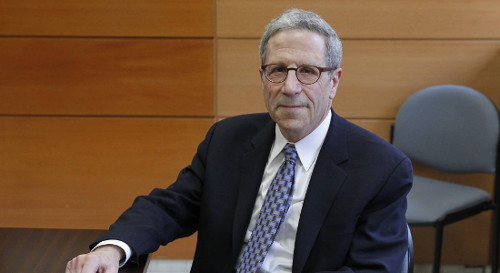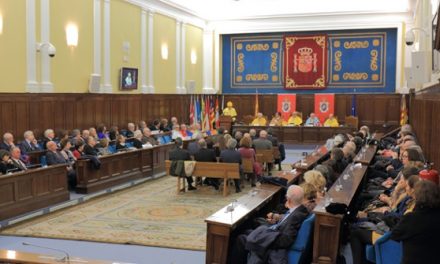“Cryptocurrencies interfere with official monetary policy, so I don’t think they are a good idea: they must be strictly regulated”
Eric Maskin, Nobel prize in Economics in 2007 and honorary academician of the Royal European Academy of Doctors-Barcelona 1914 (RAED) addresses in two interviews granted to the Spanish newspapers El Mundo and Cinco Días the major issues of economic news, offering a diaphanous position on the economic austerity imposed by Germany in the peripheral countries of the European Union, the legal and fiscal reforms of the Trump Administration, Brexit, the cryptocurrency market, the collaborative economy, the thaw of the two Koreas or the incentive policies and the theory of games applied to various markets and economic sectors.
After receiving an honorary doctorate from the Carlos III University of Madrid, Maskin reflected on his well-known criticisms of the austerity policies with which the European Union forced countries such as Ireland, Greece, Portugal and Spain after the economic and financial crisis. “Austerity caused unnecessary harm, which affected people with less ability to bear it, Germany has an almost religious position in favour of austerity, we have seen that in the United States there has been no austerity and that it has not been necessary to recover from recession: historically, austerity has slowed down recovery, when will this lesson be learned?”, he said.

Dr. Erik Maskin
Likewise, the honorary academician warned of the risks of a negotiation on the Brexit that “could serve as an example to other countries to embark on the same path” and on the White House’s intention to annul the Dodd-Frank law because of the risk of increasing the deficit and inequality in his country. He was also critical of the escalation of tension that Donald Trump has fostered with North Korea and praised the thaw that the South Korean government has fostered, “the country that would pay the bill for a war”, he argued.
Maskin considered that the collaborative economy based on new technologies will not impoverish the labour market, despite leading its unstoppable transformation, and warned about a cryptocurrency market without any regulation: “It would be good if governments used the Blockchain system on which Bitcoin is based, but private currencies interfere with official monetary policy, so I don’t think they are a good idea, they must be strictly regulated”.





